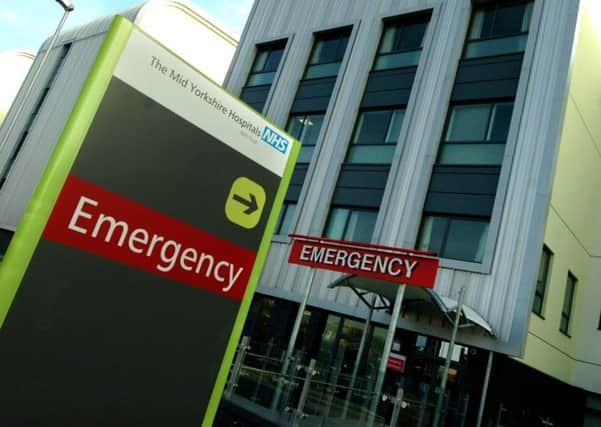UPDATED - Stress and low morale among staff at Mid Yorkshire Hospitals Trust


The NHS Staff Survey found that 40 per cent of staff at Mid Yorkshire Hospitals Trust had suffered work-related stress in the past year.
The national study also scored Mid Yorkshire, which runs Pinderfields, Pontefract and Dewsbury hospitals, among the worst NHS trusts for whether staff would recommend it as a place to work or be treated.
Advertisement
Hide AdAdvertisement
Hide AdThe survey found that 63 per cent of staff were working extra hours, although this was below the national average of 71 per cent.
Survey results for 2014 show that a quarter of workers who took part had experienced bullying, harassment or abuse from other staff in the past year.
Nursing union the Royal College of Nursing said there had been little improvement at Mid Yorkshire since last year’s results highlighted shocking levels of stress and bullying.
Glen Turp, the union’s regional director, said: “The results for the Mid Yorkshire Hospitals Trust are once again disappointing.
Advertisement
Hide AdAdvertisement
Hide Ad“The 2014 survey continues to highlight real problems in a number of key measures and the trust remains in the worst 20 per cent nationally in a number of important areas.
“The trust must now set out in detail urgent proposals to tackle the shortcomings identified.”
David Melia, Mid Yorkshire’s director of staff engagement, said: “The NHS staff survey results show that Mid Yorkshire NHS Trust has made encouraging improvements in a number of areas, including feeling that care of patients is the organisations priority, recognition for good work, risk and incident reporting/raising concerns and not feeling pressured to come into work when ill.
“We recognise further improvements are needed and we are committed to creating an environment that is pleasant and positive in which staff feel valued.
Advertisement
Hide AdAdvertisement
Hide AdWe have a number of initiatives where staff from across the organisation, clinical and non-clinical, are involved, coming together to drive changes.
“Early indication shows these are valuable groups that will help make a positive difference.”